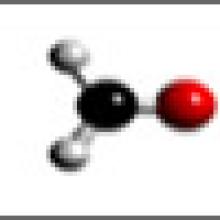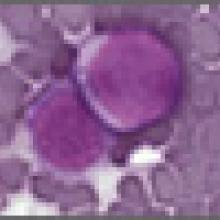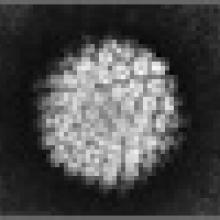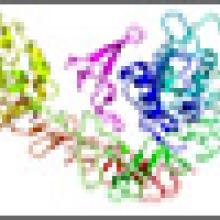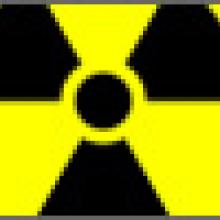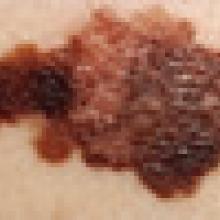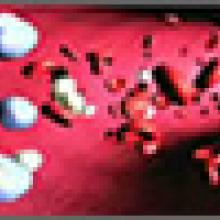Newsroom
6/15/2011
The US Department of Health and Human Services released the "12th Report on Carcinogens” on Friday, June 10, 2011 through the National Institute of Health’s National Toxicology Program. In this report, eight chemicals were listed for the first time as agents that were “known or reasonably… more
6/1/2011
A study of over 14,000 childhood cancer survivors showed that they are at higher risk of developing stomach/digestive tract problems later in life. Survivors were also more likely to need medical care for digestive problems, including cirrhosis of the liver. It is important that cancer survivors… more
5/27/2011
Today, the Friday before the Memorial Day weekend, is 'Don't Fry Day'. Melanoma skin cancer is the most lethal form of the disease and is the most common cancer in 25-29 year olds. The number of melanoma cases in the U.S. has been increasing, and younger people are frequently affected.
5/27/2011
A chemical, polysaccharopeptide (PSP), isolated from the Turkey tail mushroom has been shown to have potent anti-cancer activity. PSP was able to block the development of cancer in mice injected with prostate cancer cells. Importantly, PSP also to prevented development of prostate cancer in a… more
5/24/2011
One of the major drawbacks of targeted cancer therapies is that cancers often become resistant to the drugs. Acute Lymphoblastic Leukemia (ALL) is a prime example. Drugs that block specific enzymes (kinases) in patients with this disease often fail due to the development of cancer cells that no… more
5/24/2011
Many women get screened for cervical cancer every year. The results of a large study to be reported at the American Society of Clinical Oncology (ASCO) meeting in June show that some women only need to be tested every three years. Women who have a negative test for HPV, the virus that causes… more
5/24/2011
It has been known for a long time that smokers are at higher risk of many different cancers (and cardiovascular disease. New research shows that, at least for colon cancer, smokers also are more likely to die from the disease. Ex-smokers also had a slightly higher risk of dying from their colon… more
5/16/2011
New results are in for a trial examining the effectiveness of the anti-estrogen drugs tamoxifen and anastrozole for the prevention of breast cancer recurrence. After 10 years, the results demonstrate that anastrozole (Armidex®) causes fewer side-effects and is better at preventing cancer… more
5/16/2011
Results of a study from Johns Hopkins shows that many men with low-risk prostate cancer do very well without any medical intervention other than being closely monitored. The results are important because at present, many men witht this type of cancer have surgery and/or radiation treatments that… more
5/13/2011
Prostate cancer screening with tests for prostate specific antigen (PSA) is controversial because the test is not very specific, resulting in unnecessary biopsies and fear. A team of researchers from Germany and Sweden has developed a new test that may avoid these problems.
The new test… more
5/13/2011
Targeted cancer drugs are supposed to be the 'smart bombs' of oncology. Unfortunately, many patients with the correct 'target' don't seem to respond well to the treatments Evidence is accumulating that one reason for the poor results is that there are decoy targets present that are intercepting… more
5/12/2011
A new report from in the UK looking at leukemia in children less than 5 yrs old shows that merely living near a nuclear power plant does NOT raise the risk of leukemia. The study evaluates information collected over the thirty-five year period between 1969 and 2004.
5/11/2011
Patients treated with chemotherapy have long described cognitive/memory problems associated with the drugs. A new study of patients treated with chemotherapy and transplants with blood cell precursors has shown that the problems can last a long time. The study showed that while the mental effects… more
5/11/2011
A large Swedishs study has shown that coffee consumption reduces the risk of estrogen receptor (ER) negative breast cancer in post-menopausal women. The study showed that many other factors influence breast cancer risk, including age at menopause, exercise levels and weight.
5/11/2011
Breast cancer development can be accelerated by horomones found in hormone replacement therapy (HRT) treatments. In a rat model of breast cancer, researchers have found that apigenin, a chemical found in parsley, carrots and other vegetables, can prevent the acclerated growth caused by the HRT… more
5/10/2011
Results of a survey conducted by the American Academy of Dermatology shows that young women are still putting themselves at risk for skin cancer, including melanoma, by using indoor tanning beds. The team surveyed 3,800 young women, aged 14-22. The results indicate that many tanning bed users are… more
5/10/2011
An evaluation of over 30,000 Medicare claims shows that even though colorectal cancer (CRC) screenings are covered by Medicare, Hispanic and black individuals are not getting tested as much as whites. Because early detection is critical in reducing deaths due to cancer, additional ressearch is… more
5/10/2011
Doctors and patients are always looking to identify ways to tell if cancer treatments are working. A new study sugggests that in patients with advanced kidney (renal) cancer who are taking the kinase inhibitor sunitinib (Nexavar®), their blood pressure may be a good marker. The researchers… more
5/9/2011
About 90 percent of cancer deaths are due to the spread (metastasis) of the cancer from its original site to distant locations in the body. The movement of cancer cells is assisted by foot-like projects called invadopodia. These cell extensions have destructive enzymes on their surface (MMP), and… more

